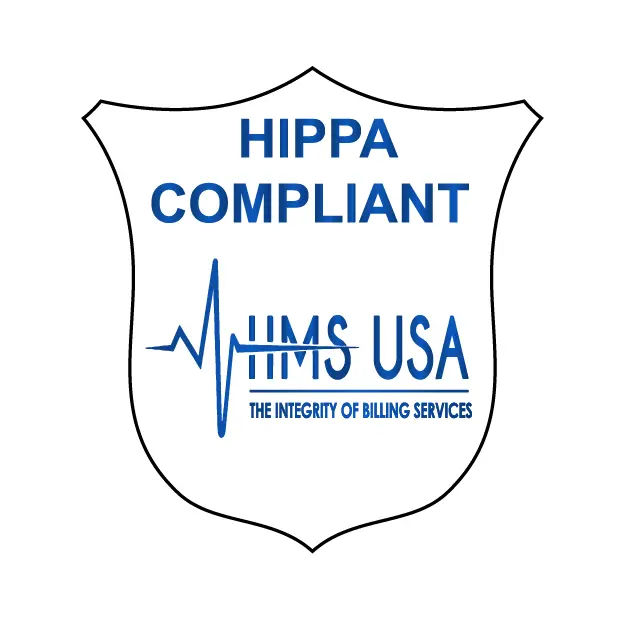
How To Avoid Denials in Medical Billing
Medical billing is a crucial aspect of healthcare administration, and involves the submission of claims to insurance companies for services for patients. Medical billing denials are caused by factors such as code errors and insufficient information, can impede cash flow. Effective strategies for billing can cut down on denials and enhance billing procedures.
Different Types of Denials in Medical Billing
Denials can result from code errors, missing information, services not covered pre-authorization requirements double claims, filing deadlines exceeded problems with coordination of benefits out-of-network billing medical necessity, as well as the inability to verify identity and eligibility.
Coding Errors
This kind of denial happens when there are a few errors in the medical codes that indicate the services rendered to the patient. It could be caused by incorrect diagnosis codes, procedure codes, or modifiers, leading to claims being rejected by the payer.
Missing Information
Denials can occur when vital information is not included in the claim form, such as the demographics of the patient as well as insurance information or credentials for the provider. Incorrect or incomplete data could cause a claim to be rejected.
Non-Covered Services
Insurance policies are not to be able to cover specific medical treatments, procedures, or other services. If a healthcare provider files an insurance claim for a non-covered service, the insurer will decline the claim based on the policy’s limitations.
Pre-Authorization/Pre-Certification Requirements
Specific insurance plans require pre-authorization or pre-certification to access certain medical procedures or services. Failure to obtain pre-authorization can result in denial of the claim.
Duplicate Claims
Submitting the same claim multiple times for the same service unintentionally may result in duplicate claim denials.
Timely Filing Limit Exceeded
Insurance companies set specific deadlines for the submission of claims which are referred to as deadlines for filing claims. If a claim isn’t filed within the timeframe specified, the payer can reject the claim.
Coordination of Benefits (COB) Issues
COB denials can occur when several insurance policies cover a patient, and there needs to be more coordination between primary and secondary insurers.
Billing Out of Network
If the provider of healthcare is not in-network with the patient’s insurance policy, the claim could be denied, resulting in the patient being held accountable for the entire costs of the procedure.
Medical Necessity
Certain services need documentation to demonstrate medical necessity. The claim can be denied if medical records don’t support the need for an operation or service.
Identity and eligibility verification denials in medical billing may occur when there is a discrepancy in the patient’s identity or eligibility, like insufficient or expired coverage.
Medical Billing Denial Codes
Insurance companies use alphanumeric codes in order to justify the denial of claims. The most commonly used codes include
CO-16
Missing information.
CO-22
Coordination of benefits.
CO-29
The filing time limit was exceeded.
CO-45
Charges exceed fee arrangement.
CO-50
Non-covered services.
CO-97
Reimbursement for already ruled-on service.
PR-1
Deductible amount.
PR-2
Coinsurance amount.
PR-3
Co-payment amount.
PR-96
Non-covered charge(s).
MA130
incorrect or incorrect information.
How Do You Make Sure That You Submit The Claims Correctly?
Making sure that claims are submitted correctly to receive timely reimbursements and ensure a healthy revenue cycle. To ensure this, double-check and verify patients’ information, including demographics and insurance details.
Verifying insurance eligibility and coverage before providing services can prevent denials of claims and dissatisfaction of patients. Correct coding and documentation justify the medical need for the billed services and aid in explaining the insurance company’s decision to pay.
A timely submission of claims and adhering to the guidelines of payers, and using electronic submission whenever possible will speed up the process of reimbursement and reduce the risk of making errors.
Utilizing a medical billing program and keeping up-to-date on industry-wide coding guidelines and changes can improve billing accuracy and facilitate the claim submission process. With a proactive approach and care for minor details, healthcare professionals can maximize their revenue and maintain the financial stability of their practice.
Medical Billing Denial Management Process
Effective denial management is essential for healthcare providers to reduce revenue loss and ensure prompt reimbursements. Implementing a well-organized medical billing denial management process can greatly improve the effectiveness of resolving claim denials. This is a step-by-step guide for the management of medical billing denials procedure.
Denial Identification
Check regularly EOBs or utilize software to find denied claims.
Categorization and Analysis
Classify denials using reason codes and analyze patterns to identify common denial codes and potential issues.
Research and Verification
Gather relevant information to verify the validity of claims, such as medical document codes and eligibility verification.
Corrective Action
Based on the findings Based on the analysis, take corrective measures to address the root cause of denials. This could include improving the quality of documentation, improving accuracy in coding, or enhancing the medical billing denial management process.
Appeals and Resubmissions
Prepare and submit appeal letters to denials that may be appealed. Follow the payer’s appeal procedure instructions and submit all documents to support the argument for reimbursement. If you have claims that contain mistakes or insufficient information, rectify the issue and submit the claims in a timely manner.
Communication and Follow-up
Maintain open communication with insurance firms. Follow up on appeals and resubmissions to ensure they are processed and received. Keep an eye on the status of every denied claim, and take the appropriate actions if necessary.
Monitor and Metrics
Monitor the process of managing denials and monitor the key performance indicators (KPIs) that are related to denials. Monitor the rate of denial and time to resolution and appeals’ success rate to assess how effective the process of managing denials is.
Process Improvement
Use the data and feedback from the management of the denials process to determine potential areas for improvement. Make changes that streamline the billing process and decrease the chance of denials in the future.
Select HMS USA to handle Deny and Resubmit Claims
HMS USA is a reliable medical billing service that is skilled in handling claim denials. Their team of experts examines denial causes, checks the patient’s information, and ensures accurate claims resubmissions, which leads to a higher reimbursement rate and more stable financial stability. Choose HMS USA for efficient denial management.











